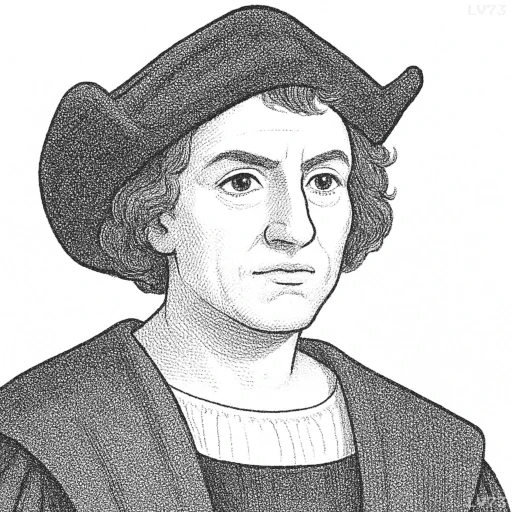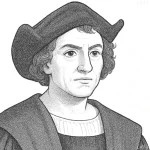“For the execution of the voyage to the Indies, I did not make use of intelligence, mathematics or maps.”

- August 25th to October 31st, 1451 – May 20th, 1506
- Born in the Republic of Genoa (now Italy)
- Explorer and navigator
table of contents
Quote
“For the execution of the voyage to the Indies, I did not make use of intelligence, mathematics or maps.”
Explanation
In this quote, Christopher Columbus acknowledges that his journey to the Americas was carried out with little reliance on scientific methods or conventional navigation tools like mathematics or maps. This statement is striking because it contrasts with the modern understanding of exploration, where precise navigation and scientific knowledge are essential. At the time of Columbus’s voyage in 1492, navigational charts were rudimentary, and the techniques of navigation were still developing. Columbus, instead, relied on a mix of experience, intuition, and a sense of destiny rather than mathematical precision. His voyages were driven more by a belief in divine guidance and his interpretation of ancient texts and geographical theories, many of which were speculative or incorrect.
Columbus’s decision to sail westward in search of Asia was based on his own calculations, which were not grounded in accurate geographical knowledge. Despite his lack of formal training in mathematics or cartography, he pushed forward with his plans, often disregarding warnings from more knowledgeable sailors or experts of the time. This speaks to his ambition, confidence, and a certain hubris, as he believed his own interpretation of the world was sufficient. The lack of reliance on maps is particularly telling, as Columbus’s expedition did not use accurate maps of the Americas (which were unknown to Europeans at the time) and instead used outdated or inaccurate maps of the Old World and the known parts of Asia.
In modern terms, this quote reveals the limits of knowledge in the early age of exploration and highlights the role of improvisation and risk-taking in historical exploration. Columbus’s journey might have been an outlier in the sense that he relied more on visionary thinking and intuition rather than the rigorous application of knowledge that would later become common in scientific exploration. Today, such an approach might be seen as reckless or irresponsible, especially given the advancement in navigational technology. However, it also speaks to the courage and tenacity required by early explorers, who often faced unknowns with little more than faith in their goals. This combination of inspiration and inaccuracy in early exploration laid the foundation for future discoveries, but also paved the way for many misunderstandings and miscalculations that would shape the history of European expansion into the New World.
Would you like to share your impressions or related stories about this quote in the comments section?
